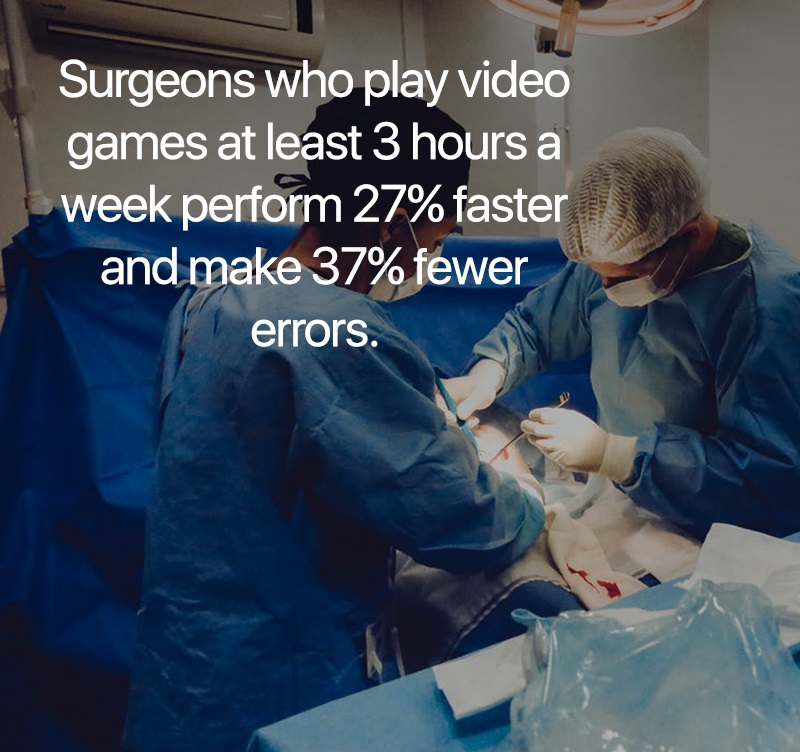Surgeons who grew up playing video games make 37 fewer mistakes

Surgeons Who Grew Up Playing Video Games Make 37% Fewer Mistakes

In today’s dynamic world, technology has become an integral part of our lives. From education to entertainment, it has transformed various industries, including healthcare. Surprisingly, a study conducted by the American Medical Association revealed that surgeons who grew up playing video games make 37% fewer mistakes during surgeries. This fascinating discovery has opened up a new avenue of research in the medical field.
Video games have long been a subject of debate, with concerns raised about their impact on individuals. However, recent studies have shed light on the positive influence of video games, especially on surgeons. The study surveyed a group of practicing surgeons and discovered a striking correlation between their video gaming experiences and surgical performance.
The cognitive abilities required for successful gaming align remarkably well with those needed for surgery. Video games demand high levels of hand-eye coordination and precision, quick decision-making, and spatial awareness – all of which are essential skills for a surgeon. These skills are continuously reinforced and honed by gamers, giving them a distinct advantage when it comes to performing intricate surgeries.

Moreover, video games require players to navigate complex virtual environments, which enhances their spatial awareness. This heightened sense of spatial awareness translates into better understanding and manipulation of the three-dimensional structures encountered during surgeries. Surgeons with gaming backgrounds exhibit improved dexterity and are less likely to overlook critical details during procedures.
The study also emphasized the positive impact of video games on surgical training. Simulators, commonly used in medical education, simulate surgical scenarios, allowing trainees to practice techniques and familiarize themselves with various procedures. By incorporating elements from video games into these simulators, trainees can enhance their hand-eye coordination, decision-making, and spatial awareness, resulting in improved surgical skills.
The findings of this study have significant implications for medical education and training. As technology advances, integrating gamification into surgical training programs can revolutionize the way surgeons are trained. Virtual reality (VR) and augmented reality (AR) simulations, influenced by video games, hold the potential to offer a realistic surgical experience, enabling trainees to practice and refine their skills in a safe and controlled environment.
In conclusion, growing up playing video games appears to have a direct impact on a surgeon’s ability to perform surgeries with fewer mistakes. The cognitive skills developed through gaming, such as hand-eye coordination, quick decision-making, and spatial awareness, are crucial for successful surgical outcomes. As the healthcare industry continues to embrace technology, incorporating video game elements into surgical training programs could pave the way for more skilled and proficient surgeons in the future.
Source:
Tags
Share
Related Posts
Quick Links
Legal Stuff

